Artificial Intelligence
The World’s Most Powerful AI-Driven Events Platform
EventsX was created with artificial intelligence and machine learning at its core. Our advanced AI technology powers every aspect of our online events platform.
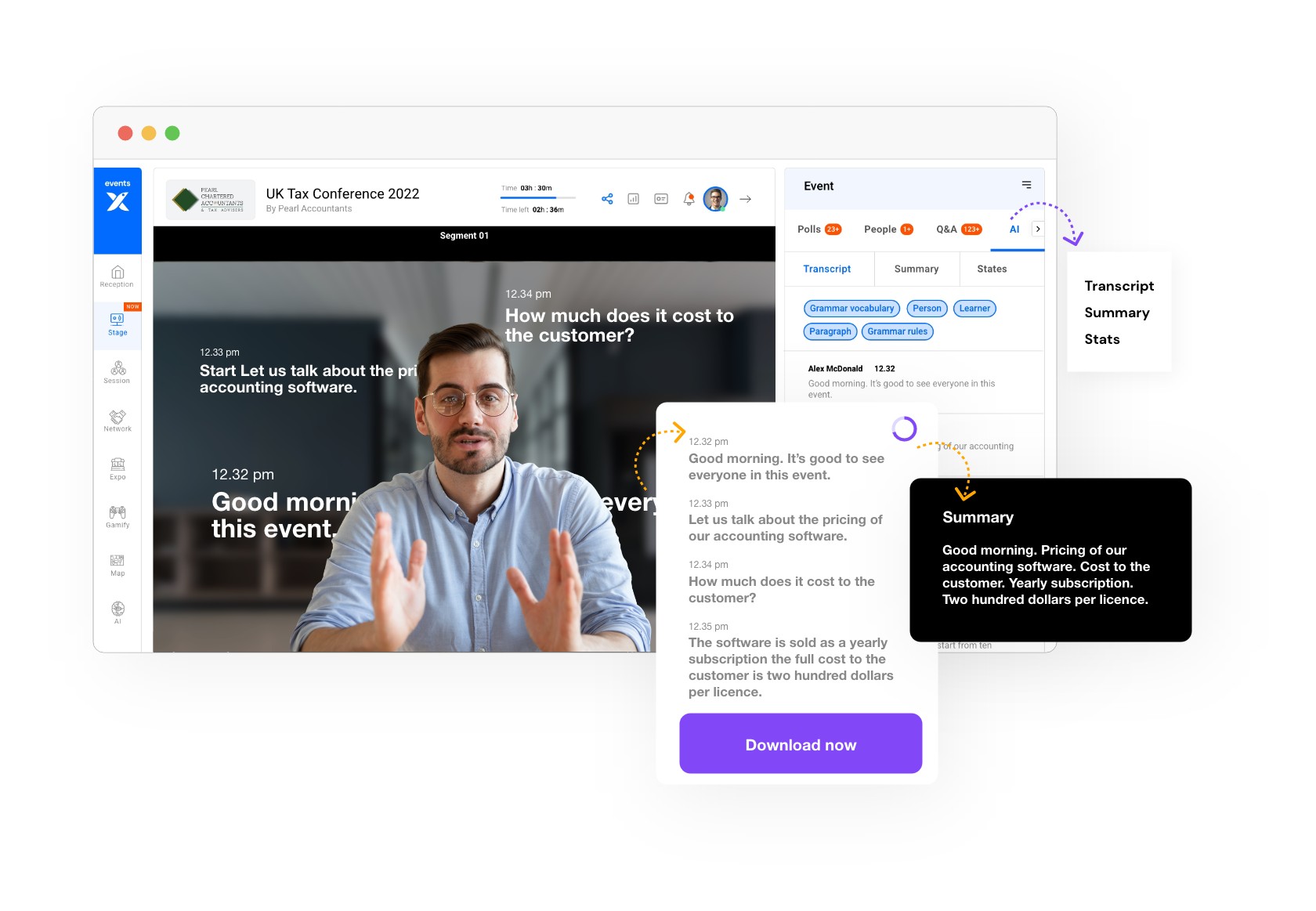
EventsX is packed with the following artificial intelligence features
Speech to text
All conversations are automatically transcripted into text using our sophisticated language analysis AI software.
Sentiment Analysis
Every conversation has a general thought, idea, or sentiment that pervades it. Our advanced AI toolset determines this sentiment throughout the event.
Conversational AI
At the core of the EventsX AI feature set is conversational AI which analyzes conversations from top to bottom, summarizing their content and determining their primary topic.
Real-time topics
Topics are the most important elements of a conversation. With the EventsX AI platform, topics are determined for all conversations and presentations.
Action Items
Our AI algorithms automatically extract action items from sessions—things that need to be done, whether at a specific time or not.
Questions AI
Whenever questions or desires for further information show up in a conversation, our AI algorithms note these down for action later.
Event Networking Area
Artificial intelligence and machine learning facilitate perfect matchmaking connections between attendees.
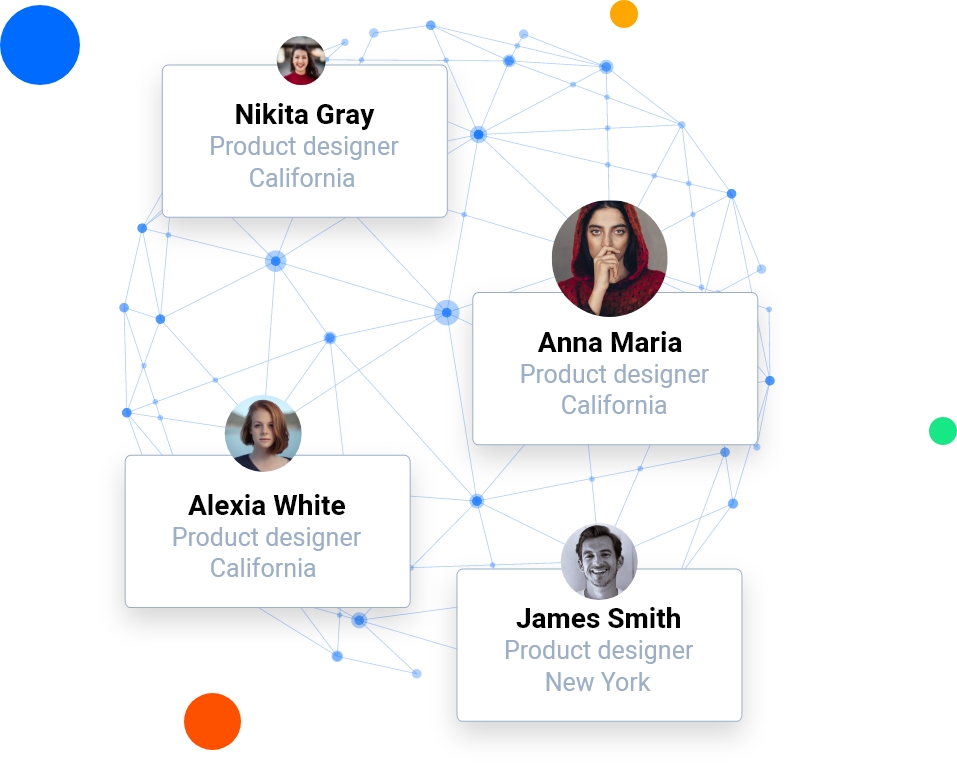
Our state-of-the-art AI networking algorithm facilitates matchmaking and nurtures the right connections. Some of the indicators and signals our algorithms utilize to find the perfect networking matches include:
Recommended list
Match based on recommended lists.
Designation
Match based on similar designations.
Location
Match users with similar locations.
Similar ticket types
Match based on similar ticket types.
And many more!
And numerous other matchmaking algorithms that can be configured.
Similar names
Matchmake based on similar names.
Summarization
Automatically summarizes long conversations into key points. The summarization algorithm distills conversations of several pages long into the most essential points.
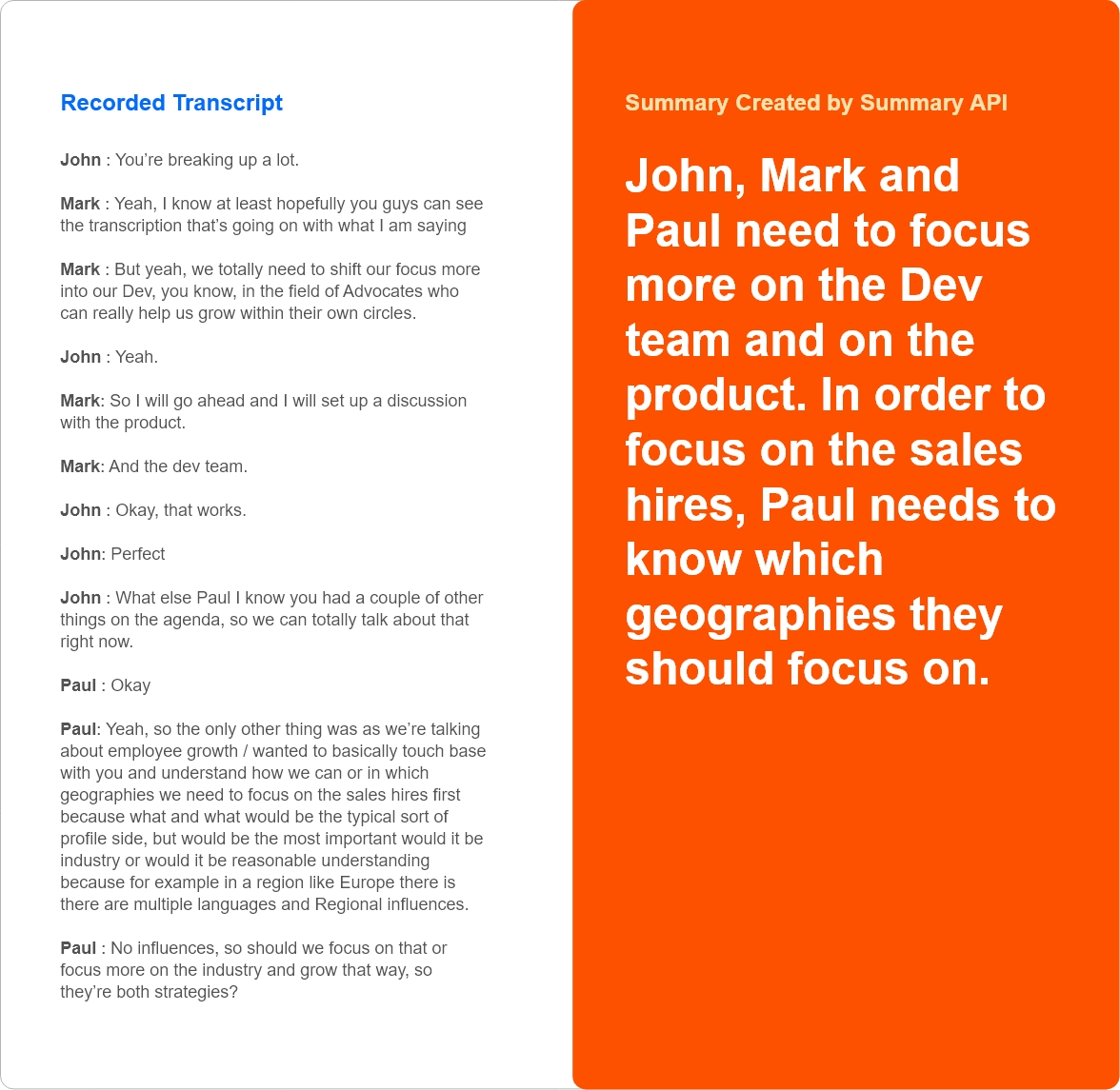
Extract key points
Get the major points of a conversation or talk.
Summarize long conversations
Present the gist of a long presentation in just a few sentences.
Understand all event sessions at a glance
Through AI-powered conversation summaries, the entire event can be seen at a glance.
Conversational AI
Conversational AI analyses conversations to determine their intent, tone, and other points that are vital to understanding the conversation’s overall effectiveness.
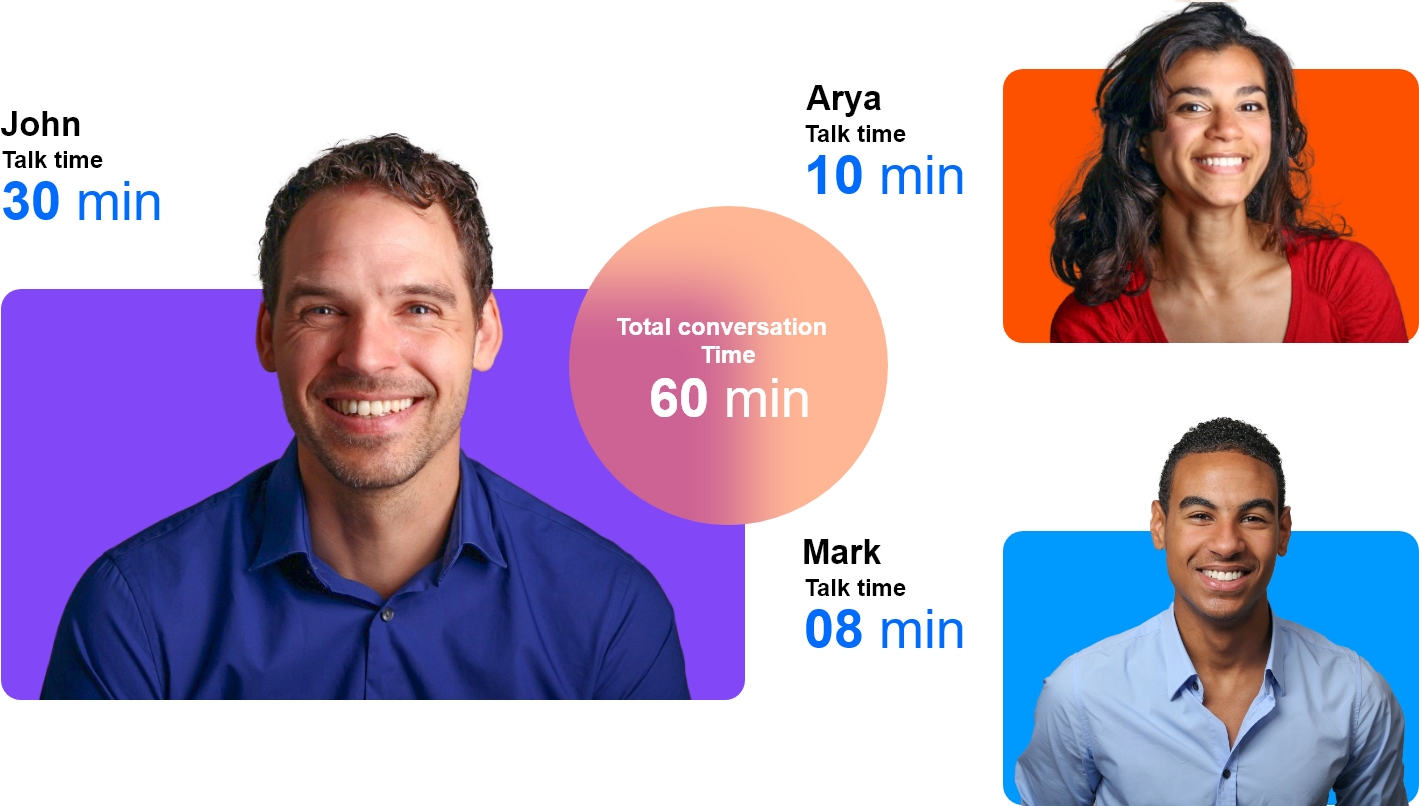
Talk time
Talk time indicates how long each speaker spoke for in the conversation.
Silence
Any times when no one spoke at all will be detected as “silence” by the AI algorithm.
Pace
The “pace” of a conversation shows how many words per minute the speakers used.
Overlap in conversation
If one speaker spoke over another one, there was an overlap in the conversation. This metric will show the total time in overlaps.
Speaker ratio
The speaker ratio shows the ratio of talk-time per speaker in the conversation.
Event Engagement Index
The event engagement index shows the overall level of engagement during the event.
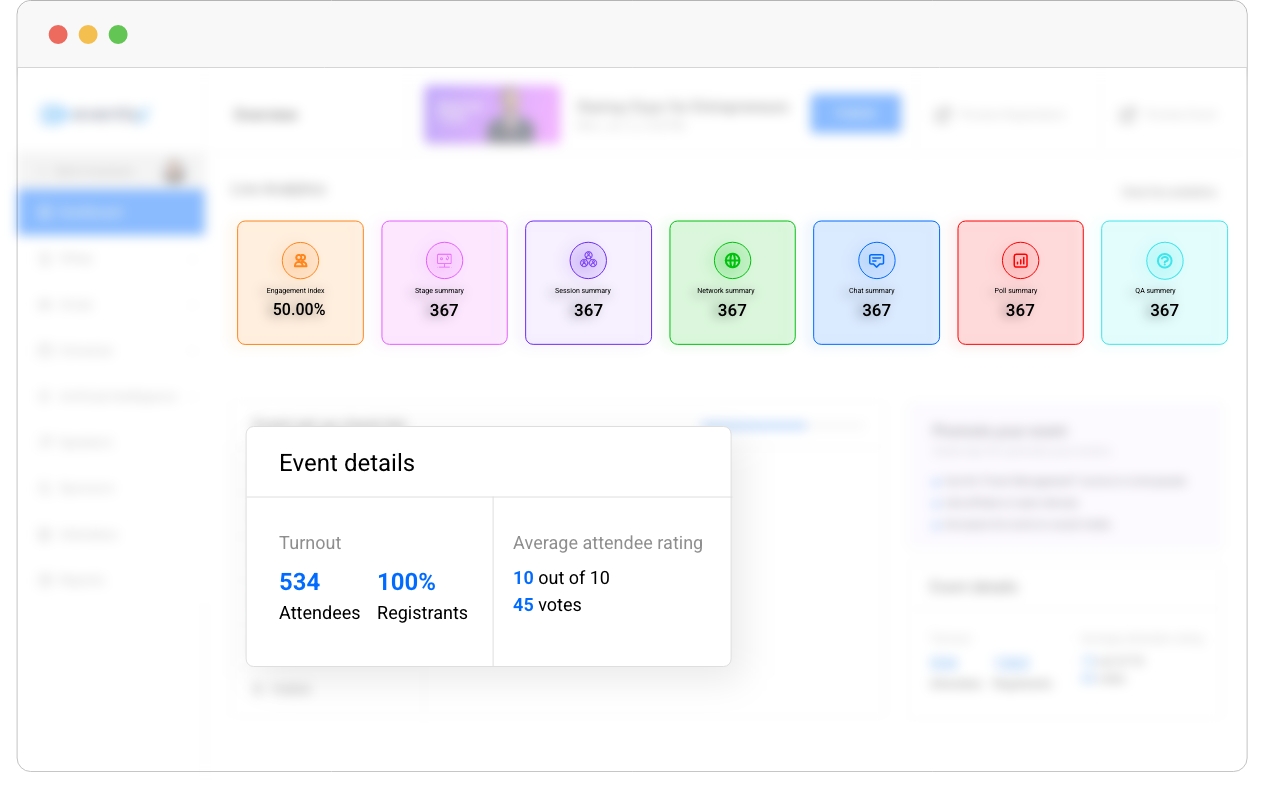
Gain access to an AI-powered engagement index that shows clearly how effective your event was at getting participants involved. This AI engagement index will cover points including:
Summary of the stage
Stage summary information.
Session summary data
Summary data of each session, and all sessions combined.
Total networking summary
Complete summary of all networking occurrences at the event.
Summary of chats
Full summary of all chats
Polls summary
Summary of all polls
Q&A summary
Summary of all Q&A sessions
Post-event surveys summary
Summary of any post-event surveys
The total number of participants
How many people attended the events and sessions.
Understanding Conversation Topics
Topics drive conversations. They are the most important phrases used that define what the conversation is about. This is not always the most frequent phrase used.

Topic-Based Sentiment
The sentiment of a conversation can be adjudicated at a topic level, lending a granularity of analysis to any conversation.
Parent topics
Above all topics sit parent topics. Our AI algorithm detects the parent topics and key aspects of conversations that speakers talked about.
Scope
We determine which sentences and information directly relate to the topic and which don’t.
Our conversational AI works on both real-time and recorded conversations.
Keywords Ranking
Our conversational AI algorithm determines the top keywords in a conversation and assigns a contextual score to them. This is not always the most frequently used keyword.
Action Items
Action items refer to phrases and content in a conversation that require one of the speakers to carry out an action once the conversation is complete.
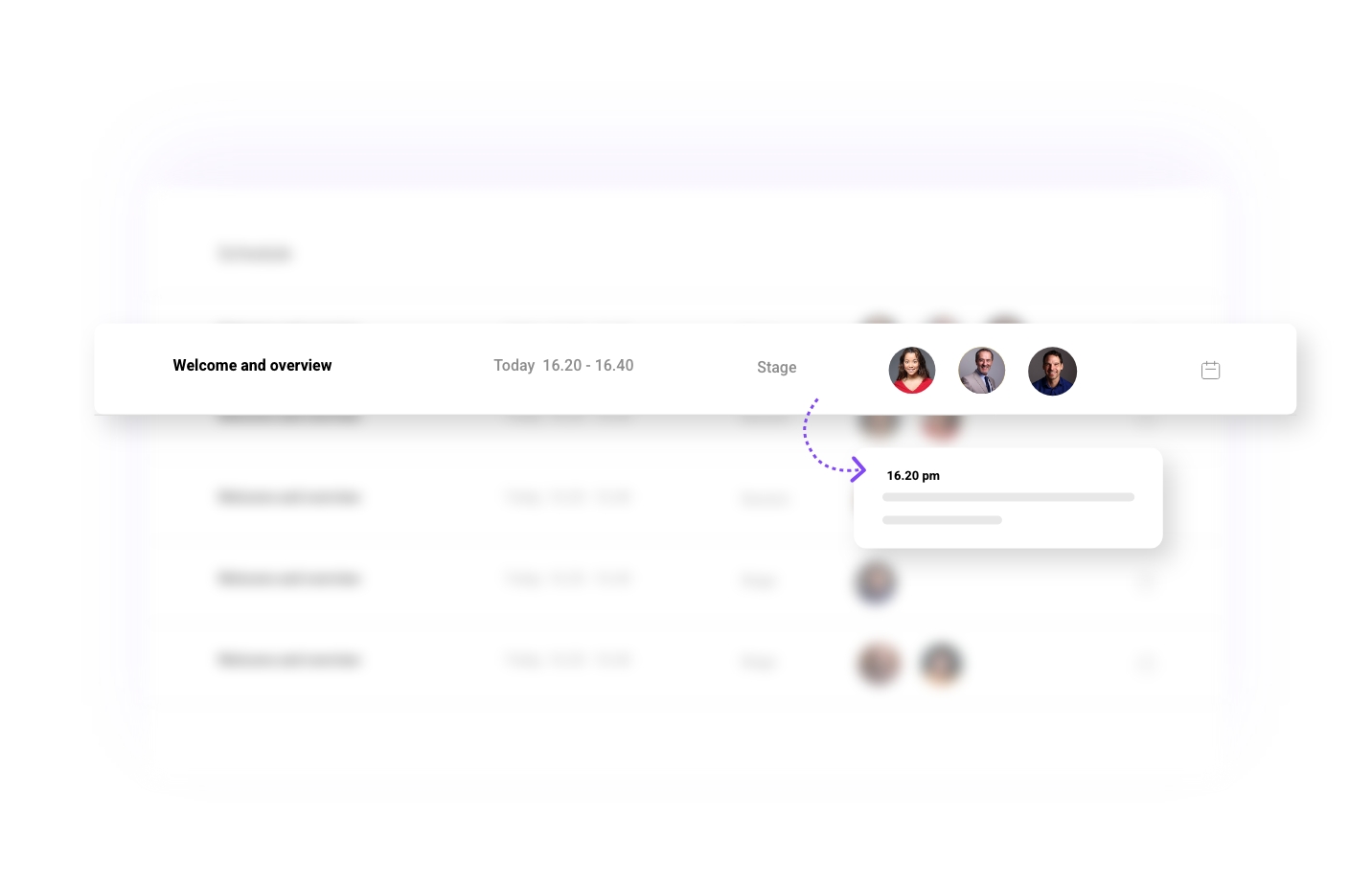
Detecting action items in a conversation is essential to determine “who has to do what.” Key to determining this is to recognize the assignor and assignee of the action item. Other elements that are important include:
Recognizing the date and time of the item (i.e. when it must be carried out)
"Let's meet at 10 PM, tomorrow."
Understanding the context of the item
What factors surround the action item that gives it contextual meaning? For example, determining who is making the comment is important.
The degree of confidence in the action item
Is it a meaningful action item or just a comment in passing?
Questions
Our AI algorithm determines which elements of the conversation contain explicit questions or requests for information.
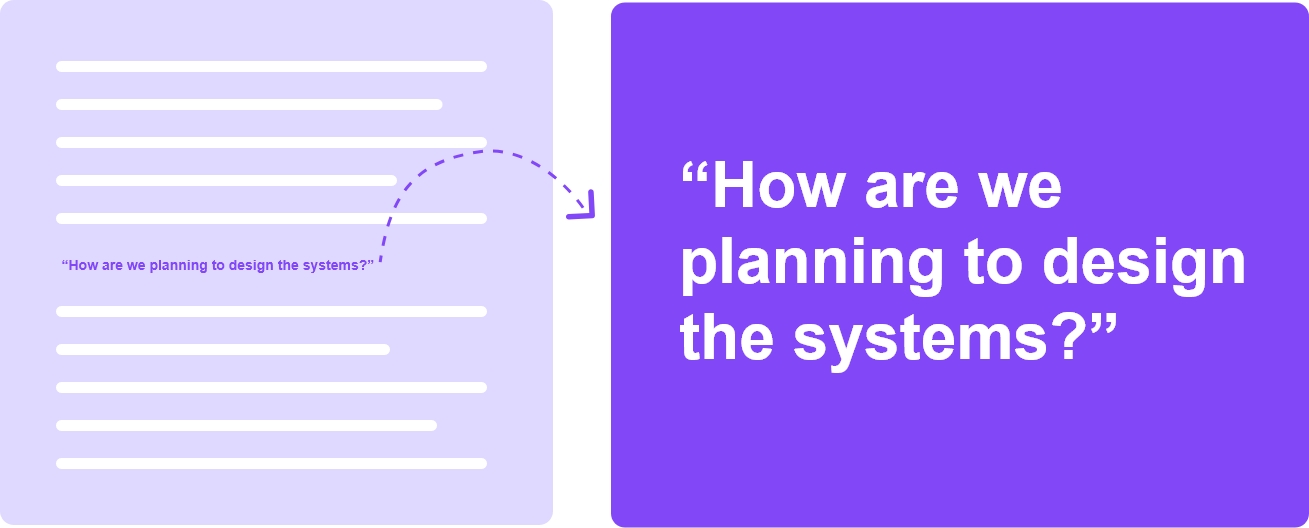
Questions AI Key Features
Explicit questions
Unambiguous questions that require answers.
Requests for information
Looking for more information on a subject or topic.
Recognizes implicit questions
Questions that are implicit in the statement.
Recognizes actionable questions
Questions leading to an actionable item.
Ignores “chit chat”
"How are you doing?" questions, and similar.
Trackers (beta)
Trackers allow you to follow key events or characteristics in a conversation. Such events are based on keywords, phrases, and context.
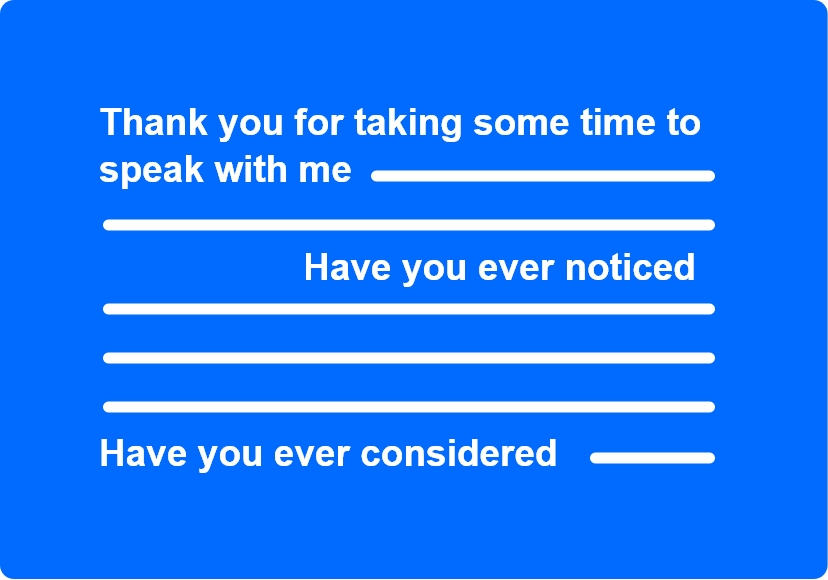
Trackers can be anything, and signal that some event has begun or some context has changed. You can define:
Intro trackers
“Have you noticed,” “Thanks for speaking with me,” etc.
Pricing trackers
“How much?” “What’s the cost?” etc.
Negative phrase trackers
“I am not interested,” “Not so good,” etc.
Interest tracker
“I’m interested”, “Tell me more,” etc.
Or any other type of tracker you can think of!
You can define any conversation trackers you can think of using the same rules applied to other trackers.
Registered
Already Registered
Covered
EventsX Trusted By Over 200,000 Professionals & Users Globally
Get started now or register for a free demo

